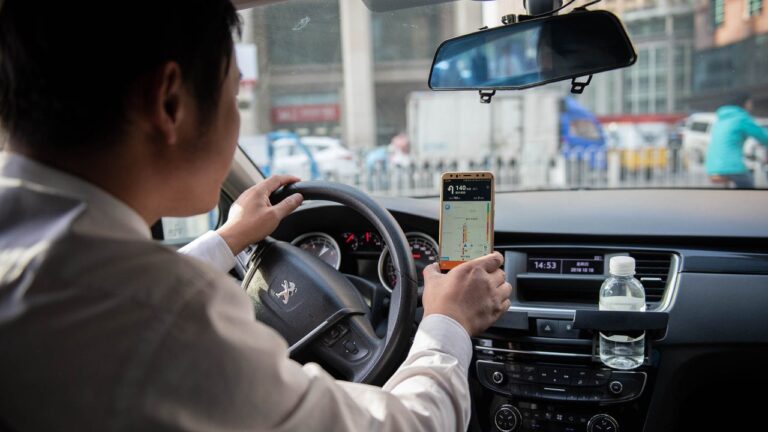Didi was founded as Didi Dache in Beijing in 2012 as a taxi-hailing app, later adding private hire. Backed by influential investors, including the internet giant Tencent, it grew rapidly and, in 2015, merged with its competitor Kuaidi Dache, which had investment from another of China’s biggest tech companies, Alibaba. The following year, after a punishing price war, the company—now renamed Didi Chuxing—saw off competition from Uber. Didi absorbed Uber’s Chinese operations in exchange for Uber taking a 17.7 percent stake in the company.
In 2021, the company announced plans for an initial public offering, controversially choosing to list on the Nasdaq in New York despite lingering tensions between the US and China over the former’s crackdown on Chinese tech companies.
Didi went public on June 30, 2021, valued at $68 billion. Two days later, on the evening of July 2, the Cyberspace Administration of China, the country’s internet regulator, announced that it was reviewing Didi’s cybersecurity. On Chinese social media, rumors spread alleging that Didi had sold sensitive user information and traffic data to the US, creating a national security risk. Didi’s management denied the accusations.
On July 4, the regulator made an announcement claiming Didi had illegally collected and used riders’ personal data, and ordered app stores to remove the app. A year later, the Cyberspace Administration decided that the company had violated three laws governing network security, data security, and the protection of personal information—all of which had come into effect only after the ban was announced.
At the time, some analysts thought the threats over data security were aimed at persuading Didi to cancel its US listing and move its IPO to Hong Kong, and that its ban, and the charges against it, were punishment for defying Beijing’s wishes.
Other tech companies certainly took the hint, and several—including content-sharing app Little Red Book, podcast platform Himalaya, and cargo service platform Huolala—shelved their plans to go public in the US.
The pressure on Didi was only part of a much wider crackdown on Big Tech companies in China. In November 2020, the IPO of the massive fintech company Ant Group was suspended after its founder, Jack Ma, criticized China’s financial regulators. At least a dozen companies, including the tech conglomerates Tencent and Alibaba, search giant Baidu, and food delivery company Meituan were investigated and fined under anti-monopoly rules. In mid-2021, an effective ban on after-school tutoring wiped billions of dollars off the value of China’s edtech sector.

